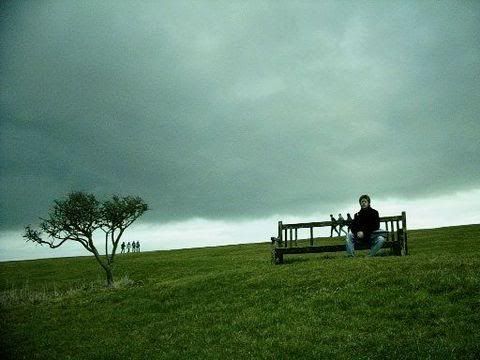Getting Mr. Lewis's Six
I've recently read several times that Christians should opt out of the culture war. If there is a culture war, and my experiences (especially those in Europe) lead me to believe there is, I think it would be best if Christians did not dodge its draft. The reasons are obvious: as Christians we are the only ones suitably equipped for battle, and we make up the bulk of our army, with soldiers of all ranks and areas of training.
But perhaps the war metaphor should not be extended in this way, for our weapons are love, hope, truth and forgiveness -- and our casualties are not the loss of life but of despair and absurdity.
Nonetheless, when reading articles such as Polly Toynbee's rabid (not to mention ill-informed) attack on the Narnia Chronicles, its hard to avoid such imagery. Toynbee of course uses Philip Pullman to back up her claims.
An illustration of this man: if C.S. Lewis is our Churchill, Pullman is Hitler. He has made a career out of being the antithesis of Lewis. Whereas Lewis soundly defended Christianity with reason, Pullman seeks to tear it down with rhetoric. Like Lewis, Pullman promotes his worldview with children's literature. Unlike Lewis, though, who wrote in a dazzling variety of genres, Pullman can't leave children's books without embarassment, as even interviews will make clear. Nothing is more revealing than his utterly irrational and inordinate hatred of C.S. Lewis.
His attacks, and the attacks of those fighting with him, often claim that Lewis was racist, sexist, violent, life-denying and loveless. As anyone who knows anything about Lewis and/or his writings can attest, it is hard to say which of these accusations is more absurd. Yet they persist. How gratifying, then, to see Michael Nelson give a very good defense against them. The venue in which this defense is printed, The Chronicle of Higher Education, is especially encouraging to me, and I hope that the purveyors of these lies give it a good look. The only flaw that I can see in the article is its brevity. But then again, the examples available to refute Pullman and the rest are practically innumerable, and to list them all would take much more space than the Chronicle is willing to give. And anyhow, how much evidence does it really take to convince a reasonable person of Lewis' virtue?
But perhaps the war metaphor should not be extended in this way, for our weapons are love, hope, truth and forgiveness -- and our casualties are not the loss of life but of despair and absurdity.
Nonetheless, when reading articles such as Polly Toynbee's rabid (not to mention ill-informed) attack on the Narnia Chronicles, its hard to avoid such imagery. Toynbee of course uses Philip Pullman to back up her claims.
An illustration of this man: if C.S. Lewis is our Churchill, Pullman is Hitler. He has made a career out of being the antithesis of Lewis. Whereas Lewis soundly defended Christianity with reason, Pullman seeks to tear it down with rhetoric. Like Lewis, Pullman promotes his worldview with children's literature. Unlike Lewis, though, who wrote in a dazzling variety of genres, Pullman can't leave children's books without embarassment, as even interviews will make clear. Nothing is more revealing than his utterly irrational and inordinate hatred of C.S. Lewis.
His attacks, and the attacks of those fighting with him, often claim that Lewis was racist, sexist, violent, life-denying and loveless. As anyone who knows anything about Lewis and/or his writings can attest, it is hard to say which of these accusations is more absurd. Yet they persist. How gratifying, then, to see Michael Nelson give a very good defense against them. The venue in which this defense is printed, The Chronicle of Higher Education, is especially encouraging to me, and I hope that the purveyors of these lies give it a good look. The only flaw that I can see in the article is its brevity. But then again, the examples available to refute Pullman and the rest are practically innumerable, and to list them all would take much more space than the Chronicle is willing to give. And anyhow, how much evidence does it really take to convince a reasonable person of Lewis' virtue?


